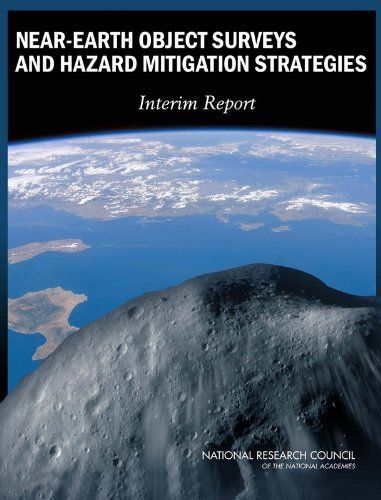
Near-Earth Object Surveys and Hazard Mitigation Strategies Interim Report
The United States is currently the only country with an active, government-sponsored effort to detect and track potentially hazardous near-Earth objects (NEOs). Congress has mandated that NASA detect and track 90 percent of NEOs that are 1 kilometer in diameter or larger. These objects represent a great potential hazard to life on Earth and could cause global destruction. NASA is close to accomplishing this goal. Congress has more recently mandated that by 2020 NASA should detect and track 90 percent of NEOs that are 140 meters in diameter or larger, a category of objects that is generally recognized to represent a very significant threat to life on Earth if they strike in or near urban areas. Achieving this goal may require the building of one or more additional observatories, possibly including a space-based observatory. Congress directed NASA to ask the National Research Council to review NASA's near-Earth object programs. This interim report addresses some of the issues associated with the survey and detection of NEOs. The final report will contain findings and recommendations for survey and detection, characterization, and mitigation of near-Earth objects based on an integrated assessment of the problem.